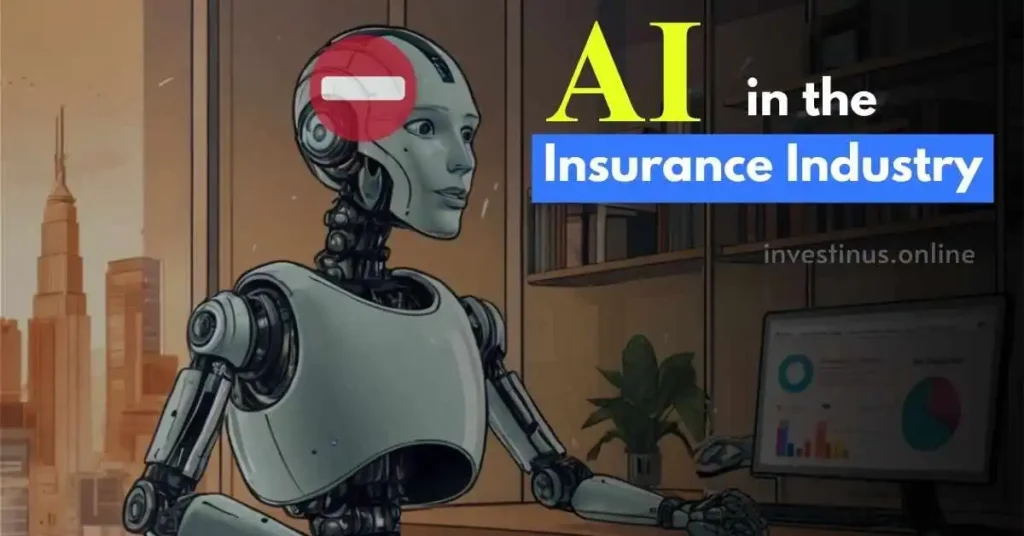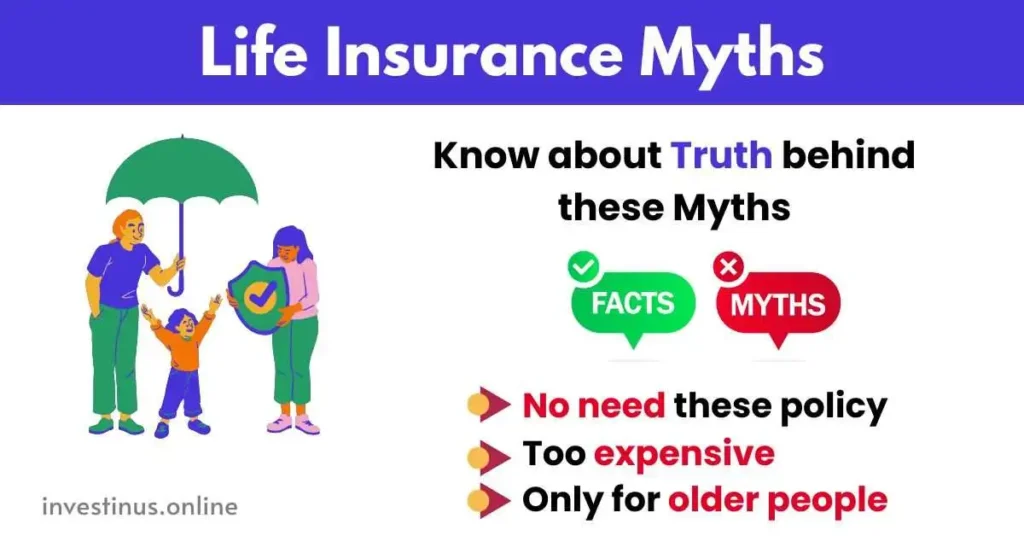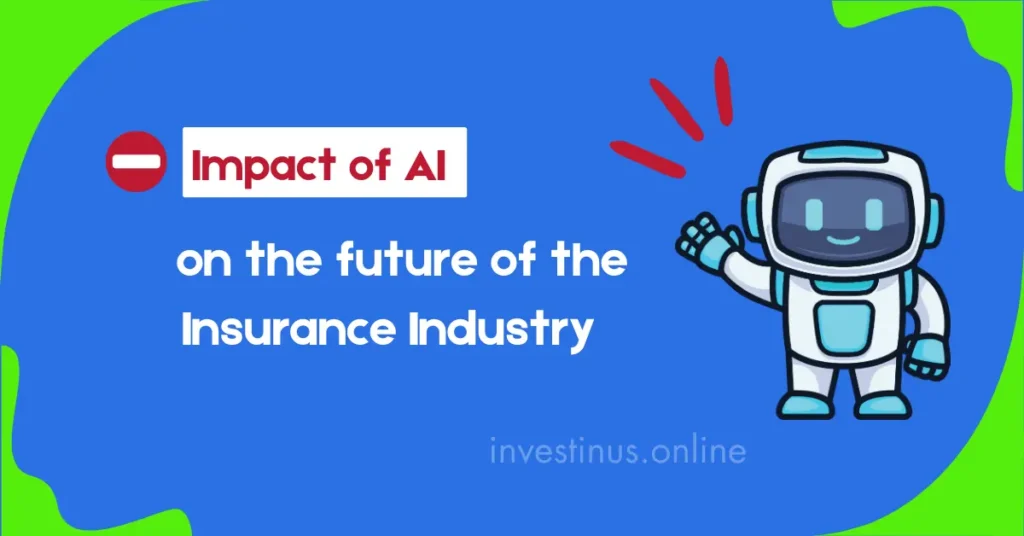Are you curious to know about the future of insurance on behalf the AI, Let’s know How AI is Transforming the Insurance Industry
Always, when new technology arises then markets definitely change, and some of the biggest revolutionary technologies called Machine Learning & Artificial Intelligence are breaking whole industries, Hence people are thinking about the future of insurance is changing quickly because of artificial intelligence (AI).
Actually, AI such as a technology that helps insurance companies to better assess risks, process claims faster, and interact with customers more effectively. AI tools like predictive analytics can predict future claims, and chatbots provide quick customer support.
Currently, as insurance companies use more AI, they become more efficient and offer better, more personalized services than that which companies who not use. This means the insurance industry will be more dynamic, efficient, and customer-friendly, marking a new beginning for the field.
According to Accenture’s report, AI can make the insurance industry 30% more productive growth by 2035. The report also said that the revenue can increase by $1.1 trillion from now, and this can done by helping with pricing, underwriting, claims automation, fraud detection, and improving customer experience.
Here are some PDFs and slides demonstrating “How the Future of Insurance with AI – How AI is Transforming the Insurance Industry” for your reference again.
You can download the Impact of Artificial Intelligence in Insurance Industry pdf here
Understanding AI in the Insurance Industry
AI stands for Artificial Intelligence which is a part of computer science that makes virtual machines do things that humans actually think, such as understanding language, skills, problems, etc. It is also learning, reasoning, and problem-solving skills
AI is used in many industrial areas, such as healthcare, improving technology, and transportation helping humans to work better and faster.
Everyone knows that AI technology is booming now and by this, every industry has been changing. and hence the Insurance industries are also changing. In the 1990s, companies had just started using computers for various work in Insurance companies such as underwriting and claims, because it is possible faster and more accurately than humans.
Also in the 2000s, some new AI tools were discovered and it has been used to help predict risks better, leading to more accurate premiums. And then in the 2010s, big data allowed for real-time risk assessments.
Similarly, the technology called artificial intelligence – AI is used in industries to avoid fraud, conversion between a customer and the brand, etc. which made the insurance industry more efficient, accurate, and customer-friendly.
Also Check:
Applications & Impact of AI on the Insurance Industry
Artificial intelligence (AI) is changing the insurance industry. AI tools like chatbots improve customer service, and data analysis helps assess risks better. AI also makes operations smoother, finds fraud more easily, automates claims, and predicts customer needs more accurately.
As AI improves, it will make the insurance industry even more efficient and customer-focused. Let’s see the major applications in details
Underwriting
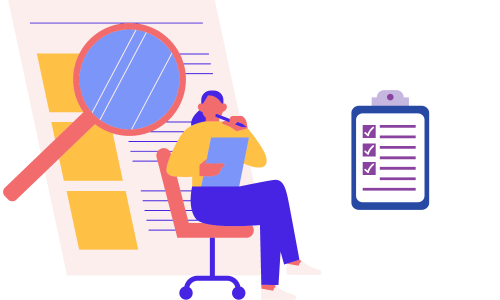
The insurance industry is evolving due to booming technology called artificial intelligence (AI) which uses computers to swiftly scan through a lot of data, including social media and previous claims, rather than depending only on humans.
This aids insurance businesses in detecting fraud, setting reasonable rates, and providing individualized plans. Customers can also acquire rapid price estimates and expedite the insurance application process.
In general, AI makes it easier for insurance businesses to perform their duties and stay abreast of market developments.
Claims Processing
Customers’ claims processes are also improved and will be more by AI. While chatbots and virtual assistants take care of the initial consumer interaction, information gathering, and updating users, human workers can focus on more complex duties.
AI can also automatically extract pertinent information from images and documents, eliminating the need for human error-prone entry. AI can also forecast the volume of potential claims and the resources required, which helps insurance companies plan ahead.
All things considered, AI in insurance claims is improving the accuracy, efficiency, and customer experience of the insurance claims process.
Customer Service
Generative AI is making customer service in insurance companies much better. In this, there are some machines Chatbots, and virtual assistants that can answer questions and give updates anytime, no matter whether it is day or night, without needing a human. This means customers get help quickly and accurately.
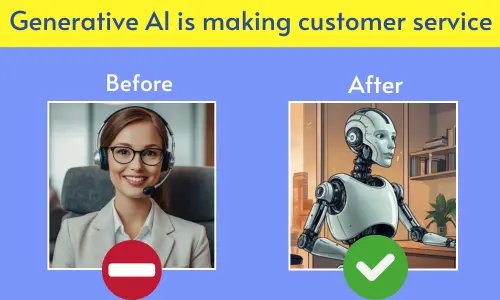
Also, looks at customer data to understand what each person needs, offering more personalized service also it helps behind the scenes by handling routine tasks like processing claims and managing paperwork. This frees up employees to deal with more complex issues.
It can even predict what customers might need and spot problems early, so companies can help before issues arise.
Overall, Generative AI helps insurance companies provide faster, more personalized, and efficient service, making customers happier.
Risk Management
The way insurance firms handle risks is being revolutionized by artificial intelligence (AI). AI can identify dangers more correctly by evaluating vast volumes of data from sources such as social media, weather forecasts, economic reports, and historical assertions.
For example can predict economic shifts or natural calamities, allowing insurers to plan. AI enhances fraud detection by rapidly identifying odd trends in claims data. This speeds up and improves the accuracy of insurance procedures, freeing up human workers to concentrate on more important work.
Hence, we say that artificial intelligence streamlines insurance operations and improves their capacity to manage risks and also it is a most important factor for insurance coverage.
Fraud Detection
AI has significantly enhanced insurance fraud detection. It swiftly and precisely analyzes vast volumes of data by utilizing machine learning and data analytics to identify odd patterns and discrepancies that people might overlook.
Also, it is continuously learning and improving, staying ahead of new fraud tricks which helps expedite, improve, and minimize errors in fraud detection, resulting in the timely processing of valid claims.
They gather information from various sources to build detailed profiles of claimants and identify potential fraud. This helps insurers reduce financial losses, maintain customer trust, and handle claims more efficiently.
By analyzing photos, documents, and client histories, Generative AI can catch signs of fraud early. It uses smart algorithms to review insurance applications and predict dishonest information by comparing it to known fraud cases. According to PwC, AI can improve fraud detection by up to 15%, making insurance safer and more efficient as AI continues to advance.
Also Check:
Personalized Products
Generative AI is able to better comprehend individual demands through the analysis of client data, including specifics, behaviors, and past claims. This enables insurers to design personalized insurance policies that satisfy the needs of each individual.
For example, AI can provide individualized rates and coverage options by precisely assessing an individual’s risk based on their lifestyle and historical actions. Furthermore, by promptly responding to inquiries about policies, claims, and coverage, chatbots and virtual assistants driven by AI improve customer service.
In addition to offering tailored recommendations based on each customer’s circumstances, these AI solutions increase client loyalty and happiness.
All things considered, artificial intelligence (AI) facilitates insurance businesses’ ability to provide customized solutions effectively, improving client satisfaction and increasing their marketability.
Predictive Analytics
The use of predictive analytics in the Insurance industry with AI has altered the way insurers perceive and manage risk. Numerous data sources, including client information, previous claims, and external variables like the weather or economy, are analyzed by Generative AI.
Predictive analytics uses patterns found in this data to forecast future claims, customer behavior trends, and market shifts. AI may, for instance, determine, from a person’s past and behavior, if they are likely to file a claim, which helps insurers better manage risks and set costs.
Insurance firms become more efficient when they use AI for predictive analytics. In addition to providing clear guidance, it automates chores like choosing insurance plans and managing claims. This reduces costs, increases accuracy, and expedites decision-making.
Predictive analytics enables insurers to make better use of their resources, anticipate client needs, and perform better all around, making them formidable rivals in the insurance market.
New Business Models
Using Generative Artificial Intelligence (AI) in data analytics is one of the developments as new on-demand and usage-based insurance models are transforming the industry also its coverage insurance. These technologies help insurance companies offer personalized plans that fit each customer better.
For example, AI can use data from devices like car trackers or health monitors to understand risk and set fair prices based on how much customers actually use their insurance.
AI and data analytics also make insurance operations smoother by automating tasks like deciding on policies, handling claims, and assisting customers. This speeds up service and makes interactions more personal. These technologies also help insurers predict and handle risks better by quickly analyzing lots of data, which lets them address issues before they become big problems.
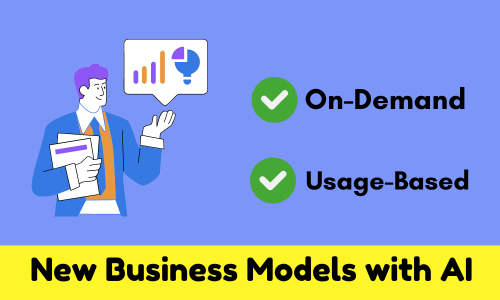
Overall, AI and data analytics are changing insurance by bringing new ways of doing things, improving customer experiences, and helping insurers adapt quickly to what customers need.
On-Demand Insurance
On-demand insurance offers short-term policies, like for a few hours or days. For example, you can get coverage just for a single event, trip, or rental item, such as a camera for a vacation.
This flexibility lets you customize your insurance based on what you need right now. It also encourages you to pay only for what you use.
AI algorithms study how people use insurance and their behavior to set fair prices and approve policies quickly. This makes it easy to buy insurance through apps and websites without any hassle.
Usage-Based Insurance
Your premiums are modified by usage-based insurance according to how you drive. It tracks your driving behaviors using technology, so you save money if you drive defensively. Your expenses rise when you drive recklessly.
AI and machine learning analyze data from devices and sensors to offer personalized insurance. They look at how you drive and your risks to set fair prices for each mile.
By promoting safe driving, this type of insurance encourages better habits on the road. It also makes sure your costs match how you drive, not just things like your age or where you live. This makes insurance more fair and fits your driving style better.
Also Check:
Future of the Insurance Industry after AI
In the future, artificial intelligence will definitely change the insurance industry. but the major factors are still that but by these changes it is possible for insurance companies to run more efficiently and creatively, improving customer service.
- new technologies called AI-powered chatbots and virtual assistants, for instance, can provide prompt answers to inquiries, enhancing and streamlining customer support.
- AI is also capable of trend prediction and real-time data analysis to identify dangers and client needs. This implies that insurance companies will be able to detect fraud more quickly and provide more customized solutions.
- Additionally, AI will automate tasks like deciding on insurance and handling claims faster and more accurately. This will speed up how quickly claims are processed and paid out.
Overall, AI will make insurance companies faster and more competitive also artificial intelligence will cover insurance policies in the future. Companies using AI might save money, make better choices, and offer better service.
But there are challenges, like protecting customer information and making sure workers have the right skills. Still, AI will likely transform insurance into a sector that offers faster, more personalized, and secure services to meet customers’ changing needs in our digital world.
AI insurance startups
New startups in the Insurance industry that are utilizing AI are revolutionizing the sector. AI is used by them to enhance customer service, risk assessment, and claim handling. Compared to traditional insurers, they can provide more efficient and individualized services thanks to AI.
For example, AI-driven chatbots provide prompt answers to consumer inquiries, enhancing customer satisfaction. Additionally, AI analyzes large amounts of data rapidly, which helps businesses better evaluate risks and design individual insurance solutions.
Moreover, AI automates tasks like paperwork and claims processing, saving time and money. This makes these startups appealing to customers who want fast service and to insurance companies aiming to stay competitive. As these startups keep innovating, they’re likely to set higher standards for how insurance works and serves customers.
The Negative impact of AI on the future of insurance
We know that AI is revolutionizing the insurance sector by improving all the technologies which is used in industries, it has the best applications, But there are also important drawbacks.
- Job Displacement: In today’s situation there are lots of tasks performed by some AI-generated bots, Hence industries require no more manpower because AI taking over tasks such as underwriting and claims processing may lead to substantial job losses and the need for workforce retraining.
- Privacy and Ethical Issues: AI relies on large datasets, and its algorithms may not always be obvious, exposing personal information or using it inappropriately. This ambiguity may result in discriminatory treatment or invasions of privacy. Strong data protection and well-defined regulations are crucial for preventing these problems.
- Bias and Discrimination: By reinforcing preexisting biases, AI trained on skewed data has the potential to exacerbate unfair treatment and discrimination against particular populations. To guarantee that AI makes impartial conclusions, a variety of fair data sources must be used.
- Cybersecurity Vulnerabilities: Increased use of AI in insurance facilitates cyberattacks. These cyberattacks have the potential to seriously impair operations and result in financial loss or the exposure of confidential consumer data. It’s critical that insurance businesses have robust security protocols in place to ensure their safety.
So, Here are some important drawbacks that we should know.
Conclusion
FAQ’s on the Insurance Industry with AI
AI will definitely affect the insurance industry in the future, but it will be a good change for us. Insurance companies will use AI to understand what customers want and need according to our budget, They can also use AI to set fair prices for their products. Like other businesses, insurance companies can use AI to serve customers better and grow.
What is the role of AI in the insurance industry?
How AI is implemented in insurance?
What is the role of technology in the future of insurance?
How is the insurance industry using AI?
How can generative AI be used in the insurance industry?
How does technology affect the insurance industry?

